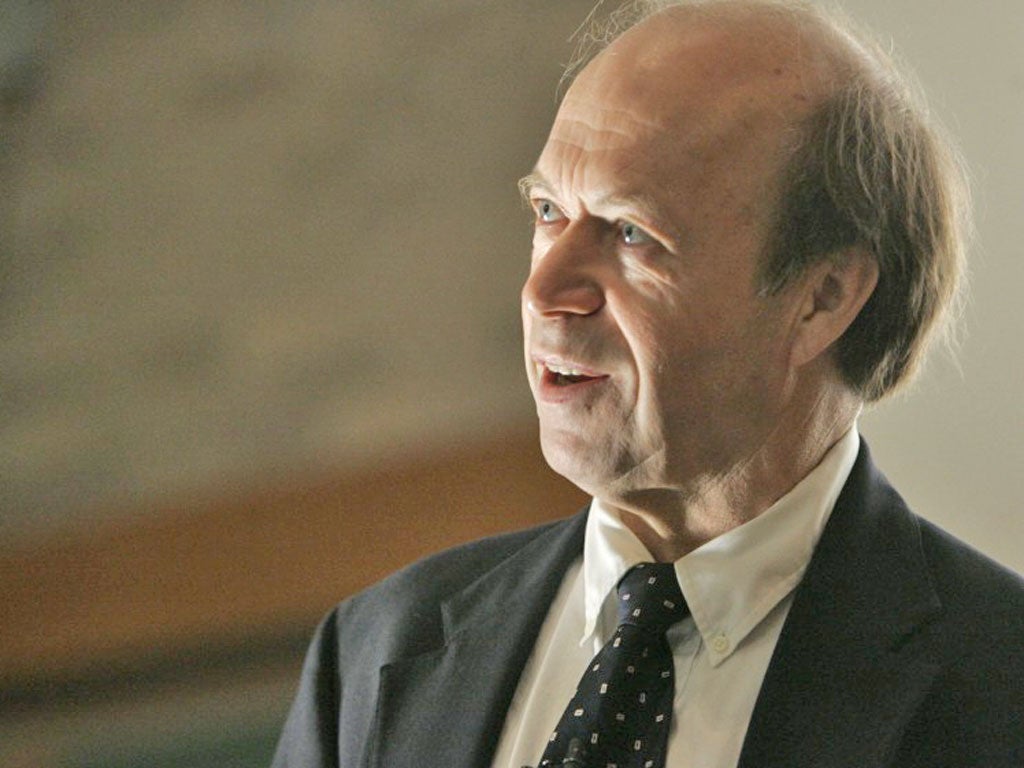Recent extreme heatwaves 'a result of global warming'
Severe summer heat caused by humans not natural events, says Nasa scientist

Your support helps us to tell the story
From reproductive rights to climate change to Big Tech, The Independent is on the ground when the story is developing. Whether it's investigating the financials of Elon Musk's pro-Trump PAC or producing our latest documentary, 'The A Word', which shines a light on the American women fighting for reproductive rights, we know how important it is to parse out the facts from the messaging.
At such a critical moment in US history, we need reporters on the ground. Your donation allows us to keep sending journalists to speak to both sides of the story.
The Independent is trusted by Americans across the entire political spectrum. And unlike many other quality news outlets, we choose not to lock Americans out of our reporting and analysis with paywalls. We believe quality journalism should be available to everyone, paid for by those who can afford it.
Your support makes all the difference.Global warming is responsible for the recent spate of summer heatwaves, according to James Hansen, the scientist who first alerted the world to the dangers of climate change. Dr Hansen, director of Nasa's Goddard Institute for Space Studies in New York, said that the "climate dice" are now loaded in favour of extreme heatwaves which now affect 10 per cent of the Earth's surface, compared with about 1 per cent in the period between 1951 to 1980.
Dr Hansen said that at least three extreme summers over the past decade, the 2003 heatwave in Europe which killed more than 50,000 people, the 2010 hot summer in Moscow and last year's droughts in Texas and Oklahoma, were almost certainly the result of man-made climate change rather than natural events.
In a study published in the Proceedings of the National Academy of Sciences, Dr Hansen and his colleagues said that rising global temperatures caused by increases in concentrations of carbon dioxide have significantly increased the probability of such extreme heatwaves.
"This is not a climate model or a prediction but actual observations of weather events and temperatures that have happened," Dr Hansen says in an accompanying article in The Washington Post.
"Our analysis shows that it is no longer enough to say that global warming will increase the likelihood of extreme weather and to repeat the caveat that no individual weather event can be directly linked to climate change," he said. "To the contrary, our analysis shows that, for the extreme hot weather of the recent past, there is virtually no explanation other than climate change."
Dr Hansen was the first scientist to warn the wider world of the dangers of global warming when in 1988 he gave evidence to the US Senate that the burning of fossil fuels was raising global average temperatures.
Since then, most scientists have been cautious about attributing any single weather extreme to climate change but in recent years a number of researchers have pointed out that some extreme weather events, such as the 2003 heatwave in Europe, fell outside what would be expected of natural climate variability.
Dr Hansen said that his study shows that the climate dice have been loaded in such a way as to make unusual hot events more extreme and more frequent.
"Such events used to be exceedingly rare. Extremely hot temperatures covered about 0.1 per cent to 0.2 per cent of the globe in the base period of our study, from 1951 to 1980," Dr Hansen said. "In the last three decades, while the average temperature has slowly risen, the extremes have soared and now cover about 10 per cent of the globe," he said.
Join our commenting forum
Join thought-provoking conversations, follow other Independent readers and see their replies
Comments